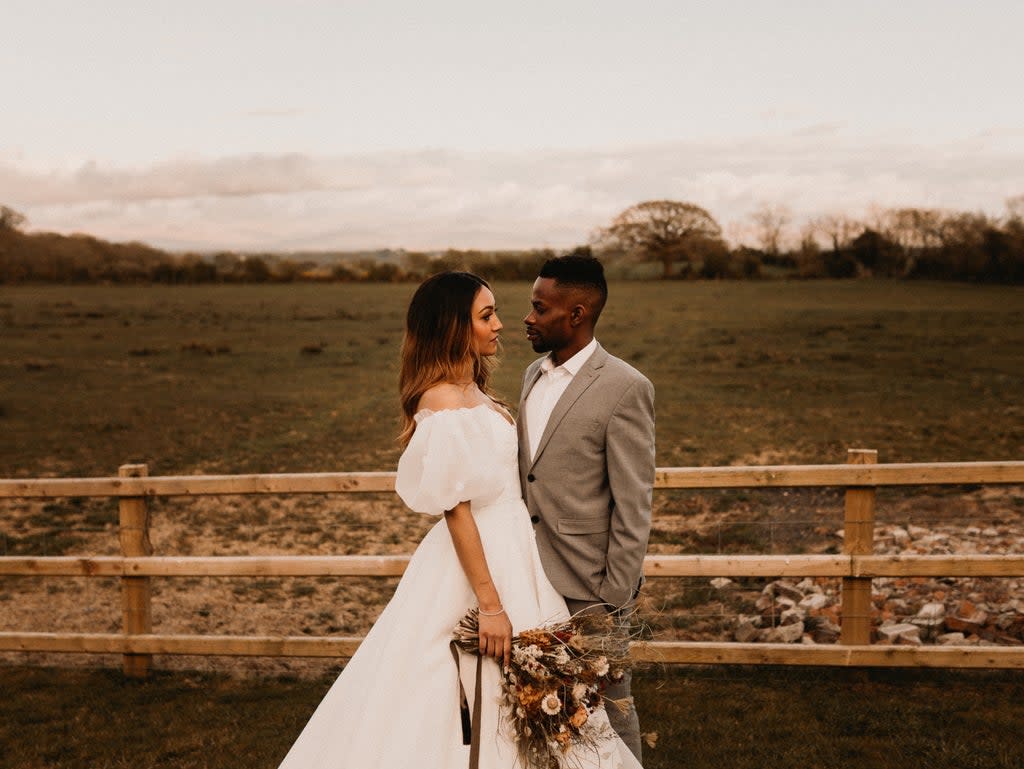‘Each to their own, but, no thank you’: Women on Twitter are debating changing their last name after marriage

A viral tweet about whether women should take their husband’s name after marriage has divided social media users.
In a post on Tuesday 15 March, journalist and author Francesca Specter said it was “bonkers” that a woman taking her husband’s surname is “still very much seen as the default, no-questions-asked option for married, heterosexual couples in the UK”.
A 2016 YouGov survey of 1,581 UK adults found that 59 per cent of women would still like to take their spouse’s surname after marriage. Additionally, 61 per cent of men said they would like their wives to take their name.
Separately, another 2016 survey of 2,003 people, carried out by Opinium for the London Mint found that 89 per cent of married women had taken their husband’s names. In those aged between 18 and 34, three in four had abandoned their maiden name.
Many women who responded to Specter’s tweet said they felt frustrated that a woman changing her name after marriage was the status quo, and that it is yet another example of gender inequality.
“Absolute madness. How can you possibly say that you believe in gender equality and then change your name/expect your partner to?” one person said.
But can we appreciate how bonkers it is that, in the 21st century, taking your husband's surname is still very much seen as the default, no-questions-asked option for married, heterosexual couples in UK (90% women do so)? Even among 18-30s, it's still 85% https://t.co/NfNmmsisJT
— Francesca Specter (@ChezSpecter) March 15, 2022
Another wrote: “Feels so strange that this is still the default. Everyone should make their own choice of course, but I couldn’t imagine changing my surname now!”
Others questioned whether men would be willing to change their names, and why this expectation of women persists.
“What I find most depressing is how few men will even entertain the idea of taking their wife’s name or starting a new one. Even when their own surname is boring!” one Twitter user said.
I really wish this conversation would be reframed away from a woman's choice, that we judge/criticise, and instead ask men if they are happy changing theirs? It's a fascinating, weirdly-evocative, debate, and so revealing how many 'feminist' men suddenly fall down at this hurdle https://t.co/Qob2ugZvUx
— Holly Bourne (@holly_bourneYA) March 16, 2022
Another user said: “I really wish this conversation would be reframed away from a woman’s choice, that we judge/criticise, and instead ask men if they are happy changing theirs? It’s a fascinating, weirdly-evocative, debate, and so revealing how many ‘feminist’ men suddenly fall down at this hurdle.”
But some argued that choosing to keep your maiden name, which in most cases is passed on from your father, is no different than taking the name of another man.
“Genuinely interested how swapping my father’s surname for my husband’s surname is less feminist? We don’t have our own name nor did our mothers, so?” one person said.
Each to their own, but, no thank you. I had no idea this was still seen as the default option, I’d be gobsmacked if someone asked this of me
— Laura Purkess (@laurapurkess) March 16, 2022
However, as pointed out by many, a woman choosing to keep her maiden name can present problems if a couple decides to have children who take the father’s surname.
“I kept my name and you should have seen the difficulties I got when the children started school (they have their father’s name),” one woman said.
Additionally, people travelling with children who don’t have the same surname as them can be expected to provide proof of their relationship with the child.
Social media users have suggested solutions for those who wish to counter this burden on women.
Some couples adopt a double-barrel name comprised of each partner’s surname, while others have come up with a new name altogether which both partner’s use.
Writer and TV presenter Dawn Porter chose to update her surname with a subtle nod to her husband when she married Irish comedian Chris O’Dowd in 2012, changing her name to Dawn O’Porter.

 Yahoo News
Yahoo News 
